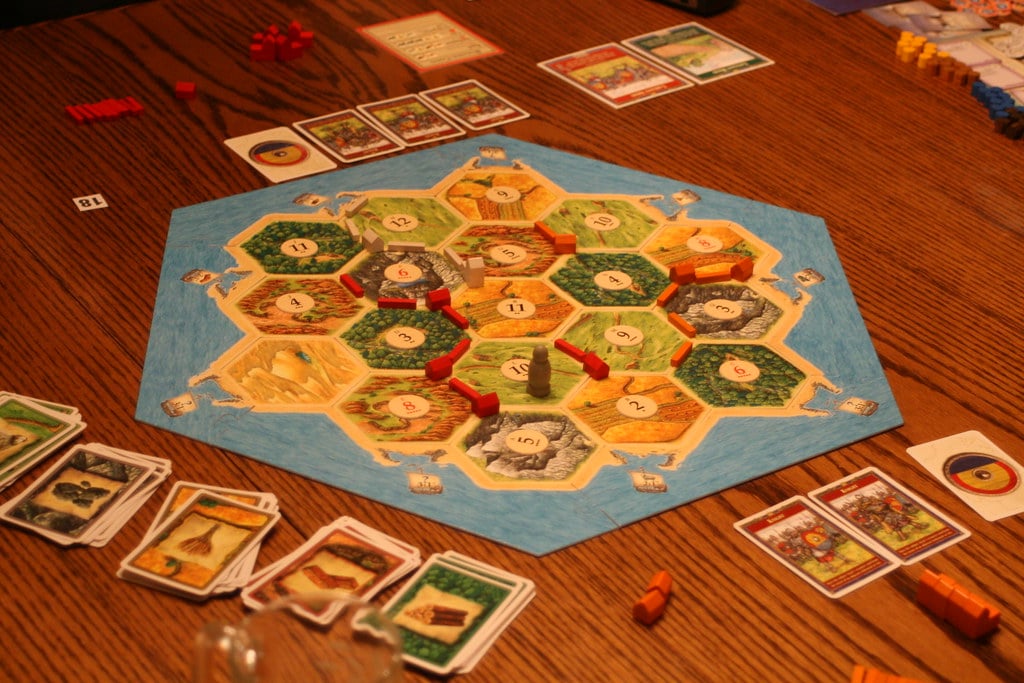Entrepreneurs with new board games must legally protect their new invention/concept by using all of the available intellectual property mechanisms. These include copyrights, trademarks, and patents. While some intellectual property rights come into being automatically, like copyright protection, full legal protection is only accomplished through official registration with the relevant governmental office. Intellectual property protection is crucial if you want to fully monetize your new game. Here are the IP basics:
Copyrights: Copyrights come into existence automatically when an original “work of authorship” is completed. Common examples are books, movies and music. Copyright protection extends to every artistic and design aspect of your new board game such as the board, pieces that may move on the board, the language of your game rules, packaging, etc. The holder of a copyright may prevent others from copying or using any of the copyrighted aspects of the game. Moreover, the copyright holder owns the rights to all derivatives of the original concepts, such electronic versions of the game or alternative formulas. As an example, over the years, design variations of the Monopoly board game, which is owned by Hasbro, have been created and sold that use famous street names in college towns and cities around the world other than New York. Those are derivative works of the original game that are protected by copyright law.
To obtain full legal protection, all copyrights related to your new board game must be registered with the US Copyright Office in Washington, D.C. You cannot sue for copyright infringement until the copyright has been registered. Remedies for copyright infringement include injunctive relief, money damages and, in some cases, punitive damages. Copyrights are transferable; that is, copyrights can be sold. Copyrights continue in existence for decades.
Trademarks: Trademarks are words, symbols, designs or logos that identify a unique commercial source of the board game. Trademarks must be registered to be fully protected under the law. Registrations are issued by the US Patent and Trademark Office (“USPTO”). Trademarks do not protect the artistic aspects of your new board game As discussed above, that is what copyrights are for. Trademarks potentially protect the name of the game, the company name and a logo or mark created for the game.
Imagine, for example, your new board game is called “Treehouse.” The board has some depiction of a tree, a track for moving pieces, a deck of cards, and dice-throwing is part of the game. You form a corporate entity — such as Treehouse Games, LLC — to manufacture, market, license and sell your game. Furthermore, let us imagine that you create a small logo to put on the packaging, the board, and for use in marketing. The logo is a tree inside a box that is shaped like a house. Trademarks will potentially protect the name of the game, the name of the company, and also the logo. We use the qualifier “potentially” because trademark registration is difficult with names that are generic or descriptive, where the name merely refers to the game and not the manufacturer of the game, and if the trademark is already in use.
For example, in 1983, a US court ruled that Hasbro no longer had a trademark for the word “Monopoly” for its game. The court issued its ruling because the word “Monopoly” had come to be identified with the game in the minds of consumers, not the commercial source of the game. Thus, in our example, “Treehouse” might not be eligible for trademark registration for that reason and also because it might be too generic or descriptive. Likewise, the name “Treehouse” might already be in use for a game. For these reasons, it is often a good idea to do some trademark research before finalizing names and concepts.
Like copyrights, the owners of a trademark can sue for infringement. Legal remedies include injunctive relief, money damages and, in some cases, punitive damages. Trademarks are transferable and continue in existence indefinitely as long as the trademark is used in interstate commerce.
Patents: There are two potential types of patents that might be available for your new board game — design and utility patents. A design patent will protect the various artistic aspects of the game that are truly novel (some aspect of the game that has never been used in any other board game). Design patents are good for 14 years. A utility patent might cover some truly novel mechanical or functional aspect of your game (such as a new and novel method of “throwing” the dice). A utility patent is good for 20 years.
For more information, contact the IP litigation lawyers at Revision Legal at 231-714-0100.




